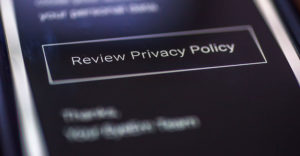A new privacy report ranking the top 15 social media platforms found Reddit and Snapchat as the least intrusive on their users’ privacy. At the other end of the spectrum were Meta products Facebook, Messenger and Instagram.
The ranking performed by data removal service Incogni was based on 14 criteria across five key categories: transgressions, data collection and retention, user control and consent, transparency, and user-friendliness.
“Our researchers have created a comprehensive privacy ranking that reveals significant variations in the data-protection practices of these platforms,” the company wrote in its ranking report.
The three platforms with the best privacy scores were Reddit, with an 8.9 score, Snapchat (9.99), and Pinterest (10.49).
“Reddit and Snapchat allow for greater user anonymity and minimize long-term data exposure,” explained John Price, founder and CEO of SubRosa, a cybersecurity services provider.
“For example,” he continued, “Reddit lets users engage without revealing personal information, while Snapchat’s disappearing messages reduce the risk of data being retained.”
“These platforms also tend to collect less personal information compared to data-driven networks,” he told TechNewsWorld.
“Reddit allows anonymous accounts, and they don’t require a lot of personal information for sign-up,” added Shaila Rana, a professor at Purdue Global, an online public university.
“Reddit is more focused on communities than building a personal profile,” she told TechNewsWorld.
She also pointed out that Snapchat not only has disappearing messages but also notifies users if someone takes a screenshot of their content and doesn’t have public news feeds like Facebook or LinkedIn. “That’s what lowers its privacy risks,” she said. “It has more private usage.”
User as Product
Mike Machado, CISO of BeyondTrust, a maker of privileged account management and vulnerability management solutions in Carlsbad, Calif., asserted that the word “invasive” is key to Incogni’s report. “The less invasive platforms are, the less interested they are at trying to monetize the user as their product,” he told TechNewsWorld.
“The worst offenders are like thinly disguised pleasure island traps, to use a Pinocchio analogy,” he said. “What appears to be the product is just a lure to get you to provide information about yourself and use the platform in ways that generate more information about yourself, with the end goal being for that business to monetize you and information about you as their real revenue stream.”
“From their data practices,” he continued, “one might surmise that a business like Reddit is more interested in their customer being the person who is communicating on the platform and less interested in their customer being their advertisers.”
At the bottom of the rankings were Facebook with a score of 18.98, Facebook Messenger (16.51) and Instagram (15.84). Business and professional networking platform LinkedIn finished in the middle of the pack with a score of 13.35.
“Facebook, Messenger, and LinkedIn collect extensive personal information, including real names, contact info, and employment history,” SubRosa’s Price explained. “Facebook’s business model relies on data for targeted advertising, while LinkedIn’s detailed profiles are attractive targets for phishing attacks. This extensive data collection significantly increases user privacy risks.”
BeyondTrust’s Machado added that those risks are increased at the user’s expense, not for any benefit. “The data is put to good use to benefit their revenue-generating advertising customers, but does that benefit the user in any meaningful way?”
In their report, the researchers noted that data collection and retention vary considerably across platforms and contribute significantly to their rankings. This category played a significant role in the poor scores of Meta’s products — with the exception of WhatsApp — and saw Telegram come out on top, they explained.
They noted that Instagram and Facebook were found to have the most problematic data collection and retention practices, while Instagram, Facebook, Facebook Messenger, YouTube, and Discord kept users’ data the longest after a successful account deletion request.
Out of Control User Controls
Purdue Global’s Rana added that not only do Facebook and LinkedIn collect a lot of data about their users, but they also make it difficult for users to protect their data from the grasping hands of the platforms. “Facebook is not very user-friendly in terms of their privacy settings,” she said.
“LinkedIn has really complex privacy settings that can be difficult for many people to navigate, especially if you look at the wide range of users that are on that platform, ranging from technical to non-technical,” she continued. “It can be really complex to understand what those privacy settings are.”
She also noted that LinkedIn shares data with third-party recruiters and companies and collects lots of professional and personal information. “That makes it more prone to having higher privacy risks,” she observed.
The Incogni researchers also found that user control and consent were inconsistent in how much effect it had on the investigated platforms’ overall scores. That category contains criteria like what privacy settings are available, what the default settings are, what can be opted out of, and the public display of users’ personal information with the strictest visibility options set.
The report noted that Facebook Messenger and WhatsApp (both Meta platforms) performed the worst in this category, while Pinterest, Reddit, and Twitch did the best.
It also found that LinkedIn and X (formerly Twitter) publicly display the most user data with the strictest “visibility” settings selected and that Facebook had the highest number of GDPR, CCPA, and similar regulatory violations, while LinkedIn suffered the greatest number of data breaches.
Can Privacy Be Protected?
For users concerned about their privacy on social media platforms, Megan Celestini, founder of Queen Bee Social, a social media marketing company in Cape Coral, Fla., offers this advice:
- Before signing up for a platform, read how they will use your information and photos. It’s important to know what you are agreeing to.
- Be cautious of what you post. So many people give away very sensitive information. One example I often see is children sharing adorable back-to-school photos in front of your house with their school and teacher’s names on their celebration board. I and strangers now know your address, where your child goes to school, who their teacher is, and sometimes who their best friends are.
- Set your profile to private. This approach can help to mitigate things as far as Meta using your information from Facebook and Instagram to train its artificial intelligence models.
However, some people believe preserving privacy may be a lost cause. “At this point, whatever information these platforms want to get, they will get,” declared Gary Flayter, celebrity brand and social media director at Kronus Communications, a public relations firm in Salt Lake City.
“You use your face to unlock your phone. If you have a new MacBook laptop, you use your fingerprint to log in,” he told TechNewsWorld. “Your information is out there, either through social media or a smartphone.”
“If you’re really that worried about privacy,” he said, “delete all your social media accounts and use a flip phone.”
























































Social Media
See all Social Media